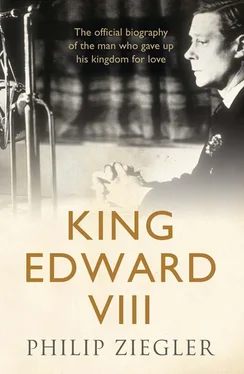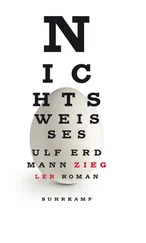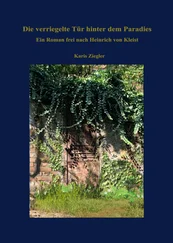The Tecks were professional poor relations. The Duke was haunted by the fact that his father’s morganatic marriage had deprived him of his claim to the throne of Württemberg, and all his life attached to the rituals of rank and precedence an importance which seemed extravagant even to the courtiers who surrounded him. His mountainous wife Mary Adelaide, ‘Fat Mary’, was by no means unaware that she was a granddaughter of King George III, but she bore her royal blood more lightly. She devoted her energies to entertaining lavishly beyond her means and then recouping the family finances by ferocious economies and periods of exile in the relative cheapness of Florence. There Princess May spent some of her most formative years, learning the value of money the hard way, but also learning to appreciate beauty and acquiring a range of aesthetic interests which to her English cousins seemed odd if not actively undesirable. From her parents she inherited a respect for the blood royal which led her to regard the occupant of the British throne with something close to reverence.
The Tecks were protégés of the British royal family, who let them occupy rooms in Kensington Palace and make their home in the pleasant, rambling grace-and-favour White Lodge, in the heart of Richmond Park. The Princess of Wales was particularly fond of the Duchess, and it was hardly surprising that May’s name should have come to the fore when the quest began for a wife for Prince Eddy. It was not a spectacular match but it was respectable, and Queen Victoria considered that a future King of England needed no extra réclame in his bride to secure his immortality. To the Tecks the marriage was all that they had dreamed of; May’s morganatic blood would have proved an impediment to an alliance with any of the grander continental royal families, while the upper reaches of the British aristocracy had shown little eagerness to embrace this peripherally royal and penniless princess. Only May hesitated. ‘Do you think I can really take this on?’ she asked her mother. ‘Of course you can,’ was the robust reply, and of course she did. 2Her future husband was given equally little opportunity to object. ‘I do not anticipate any real opposition on Prince Eddy’s part if he is properly managed and told he must do it,’ wrote the Prince of Wales’s private secretary, Francis Knollys, ‘– that it is for the good of the country etc. etc.’ 3
May was spared what must have seemed an unappealing match. The engagement was announced at the end of 1891; the wedding fixed for February; early in January 1892 Prince Eddy contracted influenza, pneumonia developed, within a few days he was dead. His place in the line of succession was taken by his brother George. The change was in every way to the benefit of the country. In 1873 Queen Victoria had sent Prince George a watch, ‘hoping that it will serve to remind you to be very punctual in everything and very exact in all your duties … I hope you will be a good, obedient, truthful boy, kind to all, humble-minded, dutiful and always trying to be of use to others!’ 4Few precepts can have been taken more earnestly to heart. Prince George had been conscientious, hard-working and responsible as a boy; he was no different as a man. The Royal Navy, for which he had been trained, can claim many men of cultivation and even a few eccentrics and intellectuals among the officers, but it takes considerable independence of mind to maintain such characteristics in a mainly unsympathetic environment. Prince George had neither the wish nor the ability to stand apart. He was an arch-conformist; bored by books, pictures, music; wholly without intellectual curiosity or imagination; suspicious of new ideas; entertained only by his stamp collection and the slaughter of ever greater quantities of pheasants, partridges and the like.
Yet his bluff and phlegmatic exterior was to some extent illusory. He was a worrier, an insomniac, a man whose sense of duty often stood between him and the enjoyment of his role in life. In 1892 his duty was to marry quickly and to provide heirs to a crown which would otherwise eventually fall into the unpromising hands of his sister Louise, Duchess of Fife. With a suitable bride for a future British monarch already selected, the solution seemed obvious to the Tecks and to his parents. The wedding planned for Prince Eddy should take place, only the date and the bridegroom would be changed. Prince George took little convincing that this was his destiny; May felt slightly greater qualms, but she too was soon persuaded. In May 1893 the Duke of York, as Prince George had been created the previous year, dutifully proposed to his late brother’s fiancée. He was as dutifully accepted. On 6 July the couple, by now very much, if undemonstratively, in love, were married in the Chapel Royal. A year later, on 23 June 1894, their first child, a boy, was born at the Tecks’ home in Richmond Park. He was not Victoria’s first great-grandchild but in her eyes he was beyond measure the most important.
The original plan had been for the baby to be born in Buckingham Palace but an early heatwave drove the couple to the comparative cool of White Lodge. The Duke of York was in the library, pretending to read Pilgrim’s Progress , when the birth took place at 10 p.m.; his father, the Prince of Wales, was holding an Ascot Week ball in the Fishing Temple at Virginia Water. The telephone that had recently been installed to link White Lodge to East Sheen was used to give him the news and enable him to propose a toast to the new prince. 5‘My darling May was not conscious of pain during those last 2½ terrible hours,’ the Duke of York wrote to Victoria; in terms that sound as if the end of the operation had been not so much the cradle as the grave. ‘The baby weighed 8 lbs when he was born, and both grandmothers … pronounce him to be a most beautiful, strong and healthy child.’ 6Fifteen hundred people signed their names on the following day in the book which had been placed in a marquee for the occasion, and the Duchess of Teck’s sister, the Grand Duchess of Mecklenburg-Strelitz, announced that she ‘went – mentally – on my knees, tears of gratitude and happiness flowing, streaming, and the hugging followed’. 7
The bickering that normally accompanied the naming of a royal child now ensued. The Queen took it for granted that a daughter would be called Victoria and a son Albert. The Duke of York said it had long been decided ‘that if it was a boy, we should call him Edward after darling Eddy . This is the dearest wish of our hearts, dearest Grandmama, for Edward is indeed a sacred name to us, and one which I know would have pleased him beyond anything.’ 8‘You write as if Edward was the real name of dear Eddy,’ retorted the Queen severely; everyone knew that he had in fact been christened Victor Albert. 9The Duke proved unusually obstinate and the baby was called Edward Albert Christian George Andrew Patrick David. Christian was the name of the baby’s godfather, the King of Denmark; the other four names represented England, Scotland, Ireland and Wales. Some reports state that David was an afterthought, introduced to gratify the aged and moribund Marchioness of Waterford. There are differing views about her motives: that assiduous and well-informed courtier Lord Esher said it was because ‘she had some fad about restoring the Jews to the Holy City’; 10the Prince of Wales’s friend the Marquis de Breteuil recorded that the old lady had dreamed of an ancient Irish legend according to which there would be a great king over the water and his name would be David. 11
The christening took place with all the pomp befitting a baby who stood third in line to the British throne. Twelve godparents, mainly German, attended; as well as the Prime Minister, Lord Rosebery. The gold bowl used as a font was brought from Windsor Castle. The cake, thirty inches high and five feet in circumference, was made by McVitie and Price in Edinburgh. ‘I have two bottles of Jordan water,’ the Duke proudly told his old tutor, Canon Dalton, and both were lavished on the occasion. 12The only discordant note was struck by the first socialist member of parliament, Keir Hardie. When it was proposed that the House of Commons should congratulate the Queen on the happy event, Hardie opposed the motion. ‘From his childhood onward,’ he said, with what to some will seem dreadful prescience, ‘this boy will be surrounded by sycophants and flatterers by the score … A line will be drawn between him and the people he is to be called upon some day to reign over. In due course … he will be sent on a tour round the world, and probably rumours of a morganatic alliance will follow, and the end of it will be the country will be called upon to pay the bill.’ 13
Читать дальше












